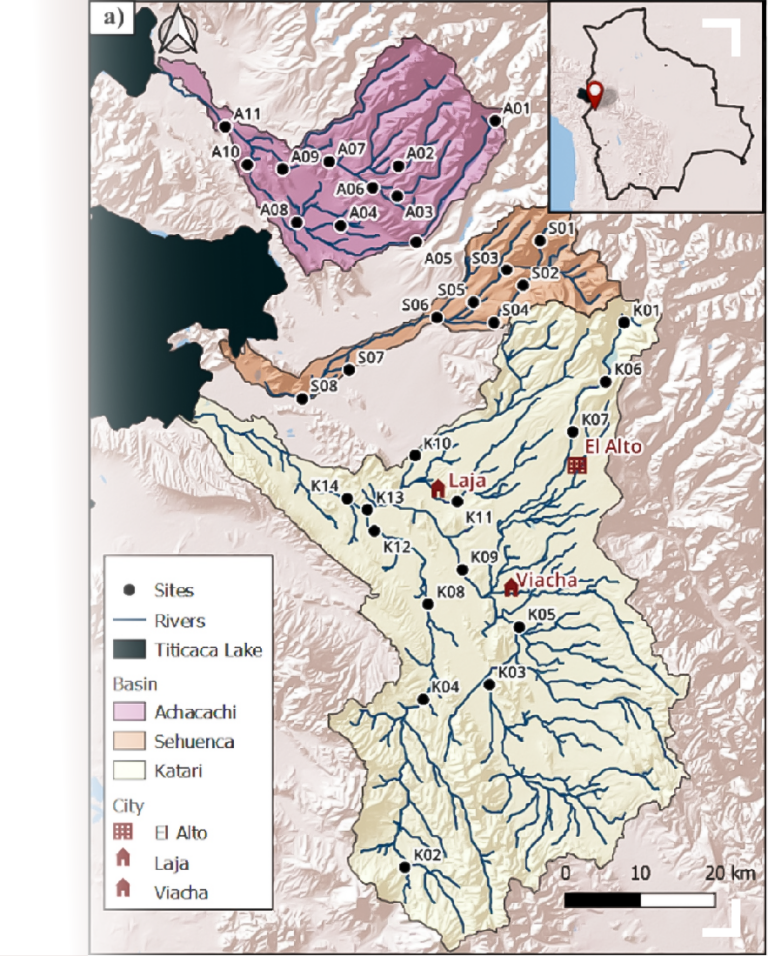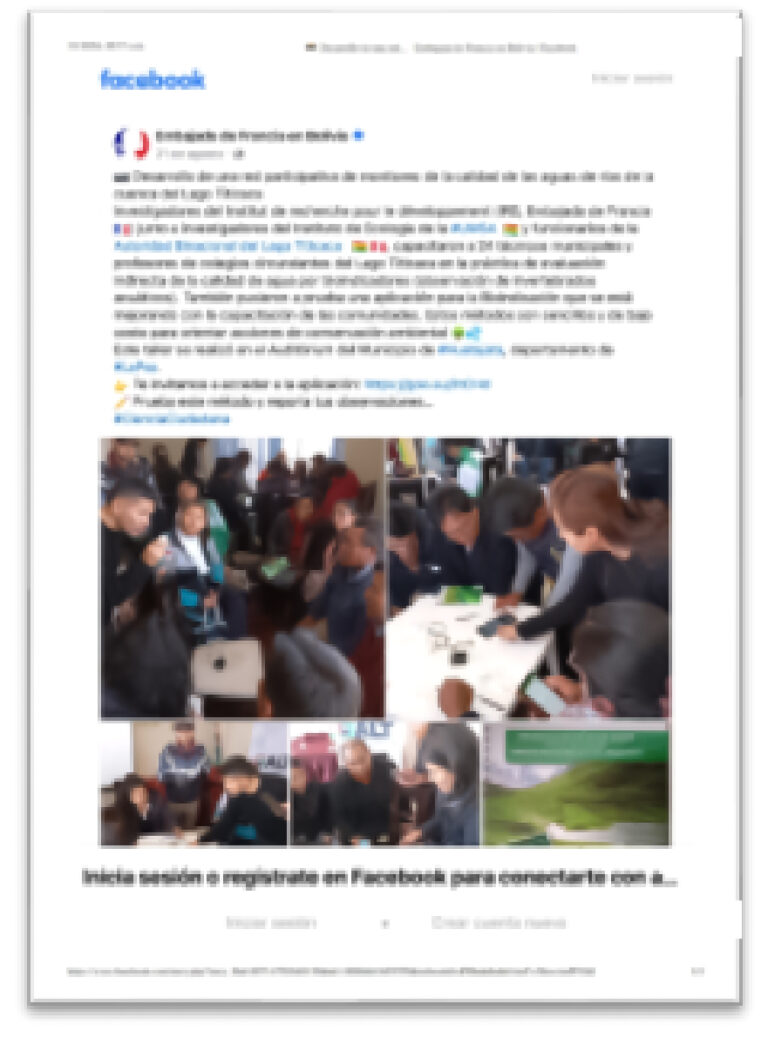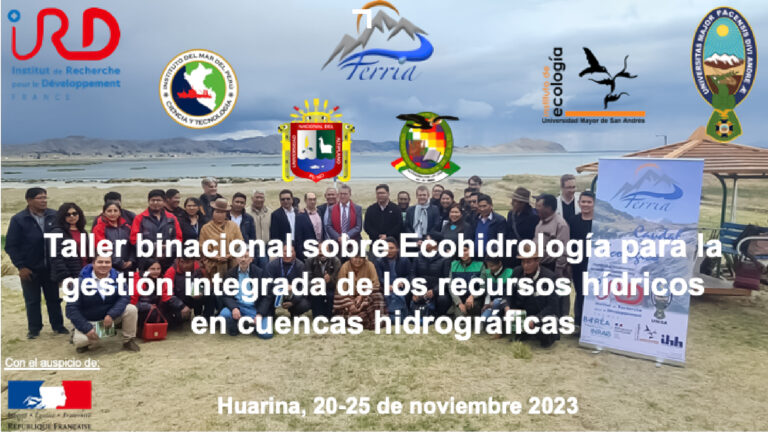PIS: C. Molina and M. Pouilly
[Contacts]
- Carlos molina: cmolinaa@fcpn.edu.bo
- Marc Pouilly: marc.pouilly@ird.fr
Highlights:
- Bioindicators have been calibrated to assess the ecological quality.
- We’re sharing our knowledge of bioindicators with the local community as a valuable tool for managing water resources.
- Biomonitoring of water quality maps for specific regions or entire watersheds can be assembled.
Abstract:
To assess the ecological health of Andean waterways, we’ve developed bioindicators such as indirect measures of physical-chemical water quality and ecological factors. These tools help us understand how human activities like pollution and resource depletion impact biodiversity.
Proyectos asociados:
FERRIA (Flow–Ecology Relationships Research and Interdisciplinary Applications): The young team initiative (Jeunes équipes associées à l’IRD), aims to foster interdisciplinary research on the characterization of flow regimes (natural and impacted) and their interactions with aquatic ecosystems in circumlacustrine rivers around Lake Titicaca. Our goal is to support regional and international efforts towards Integrated Water Resources Management (IWRM).
Contacts: Carlos Molina: cmolinaa@fcpn.edu.bo
Marc Pouilly: marc.pouilly@ird.fr

UNESCO – Ecohydrology chair: This research program aims to facilitate a constructive and peaceful dialogue between Bolivia and Peru. By leveraging the latest advancements in water management, ecohydrology, and nature-based solutions, we seek to establish equitable international water governance.
Contacts: Ramiro Pillco: rami_lund99@hotmail.com
Ramiro Pillco: cmolinaa@fcpn.edu.bo

LWI (Life Without Ice):
This transdisciplinary project, part of a scientific approach to sustainability, aims to study the physical, ecological and social consequences of glacier extinction on a global scale, and in particular in temperate (Alps) and tropical (Andes and Rwenzori) regions.
Contactos: Olivier Dangles: olivier.dangles@ird.fr
Sophie Cauvy-Fraunie: sophie.cauvy-fraunie@inrae.fr


